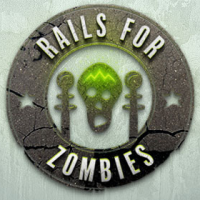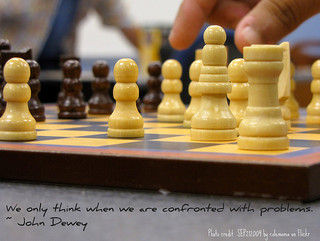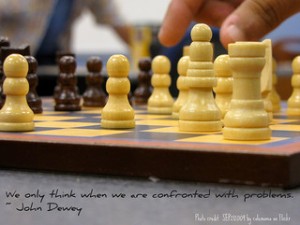There is an amazing wealth of information available to anyone wishing to learn code. This abundance of resources is both assuring and overwhelming. How do you sift through available resources and choose the course of learning best for you?
The nature of learning a new skill requires that you dive into foreign territory, which can be scary. But, it’s not uncharted territory; there are others who have been in your shoes before and succeeded.
For me, I visualize learning a skill as trying to cross from one side of a giant river to the other side. You’re currently on one side and you want to get to the other side. Standing, gazing across that great divide, you know there are lots of people who have tried to cross and have been unsuccessful. But, there also people who have crossed successfully, doing so using various methods available to you.

Photo courtesy of Chris Gladis
How do you, standing alone on the starting side, determine which path is right for you? Following these 3 steps will help.
#1 Evaluate All Options Against Your Resources
There are many options out there – too many to list. Quora is a great resource for any language you’re trying to learn. Here’s the Quora question and answer I used for as guide for Ruby. Because most resources will either be online or books available to order, create a bookmark folder for each language to save your list.
Also, your resources factor heavily into your decision as well. For me, spending years to get a CS degree, attending a developer bootcamp, or hiring a private tutor wasn’t an option because of time and cost reasons. Eliminate any options for which you don’t have the resources.
#2 Determine Your Learning Style and Match Resources
Once you’ve got a list of resources, it’s time to evaluate those options against your own learning style. Just because someone raved about a learning source doesn’t mean it’s right for you. Remember, there are many people who successfully crossed the river, but they didn’t all take the same journey. Find what works best for your brain.
#3 Don’t Be Afraid To Iterate
This last step is crucial, especially in learning web development. If you find a resource isn’t holding your attention or is incredibly too hard or too easy, don’t allocate your precious resources on it. Get rid of it and move on. This isn’t school, you’re not being graded on what you complete; instead, your accomplishment is all about what you learn.
One word of warning, don’t quit a resource because it’s challenging you; some of the best learning happens at this neural point.
My first week was scheduled to include Michael Hartl’s Ruby Tutorial. I even had a comment posted, which suggested this tutorial was a good place to start. However, I ultimately shifted course and focused my time on Rails for Zombies by Code School. I wanted to see the individual Rails pieces in action (MVC) before diving in heads first.
Learn Code Conclusion
Your time is the most precious resource you have when learning a new skill. Do what’s best for you and be able to adjust your plan as needed.
How do you create a plan for learning a new skill? Leave your thoughts and comments below.





